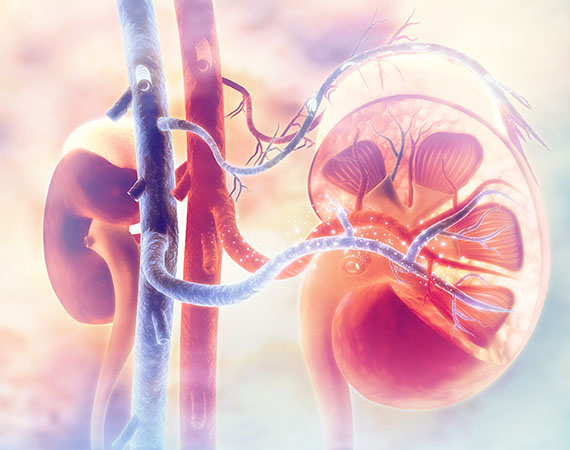What is acute kidney failure
Acute kidney failure takes place when the kidneys suddenly become unable to filter waste products from the blood. When kidneys lose their filtering ability, dangerous amounts of waste may accumulate, and the blood's chemical makeup may become out of balance.
Acute kidney failure develops rapidly, usually in less than a few days. It is most common in patients who are already hospitalised, critically ill people who need intensive care.
Acute kidney failure may be fatal and requires intensive treatment. However, it can be reversed. If the patient is otherwise in good health, they may recover and gain normal or nearly normal kidney function.


Symptoms of acute kidney failure
Sometimes acute kidney failure causes no symptoms or signs and is detected through lab tests done for another reason.
Symptoms and signs may include:
- Fluid retention, causing swelling in the feet, legs, or ankles
- Decreased urine output
- Shortness of breath
- Fatigue
- Confusion
- Nausea
- Weakness
- Irregular heartbeat
- Chest pain or pressure
- Seizures or coma in severe cases
Diagnosis
If your symptoms and signs suggest that you have acute kidney failure, Dr Ramsunder may recommend certain procedures and tests to verify your diagnosis.
These test and procedures may include:
- Urine tests: Analysing a sample of your urine
- Urine output: Measuring how much you urinate in 24 hours
- Blood tests: A blood may reveal rapidly rising levels of urea and creatinine- substances that measure kidney function.
- Imaging tests. CT scans and Ultrasounds may be used to help Dr Ramsunder see the condition of your kidneys.
- Kidney biopsy: In some situations, Dr Ramsunder may recommend a kidney biopsy to remove a small sample of kidney tissue for lab testing.
Treatment
Treatment for patients with acute kidney failure typically requires a stay in the hospital. How long you will stay in the hospital depends on the cause of your acute kidney failure and how quickly your kidneys recover.
Treatments may involve one or more of the following:
- Treating the underlying cause of the kidney injury
- Treating complications until your kidneys recover
- Treatments to stabilise the amount of fluids in your blood.
- Medications to control blood potassium
- Medications to restore blood calcium levels
- Dialysis to remove toxins from your blood
Do you want to find out more, or do you have any questions about what to expect on the day of the appointment?
Give us callRequest Appointment
Please contact our practice at 021 391 9958 if you have any questions or if you would like to request a consultation, or fill out the contact form below.

Contact Dr Nikash Ramsunder to schedule an appointment
GIVE US A CALL: 021-391-9958Leave a message
